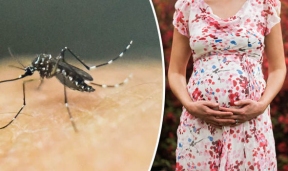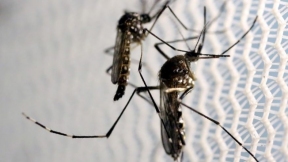
Adult female mosquitoes can pass the Zika virus along to their offspring, U.S. researchers said on Monday, a finding that makes clear the need for pesticide programs that kill both adult mosquitoes and their eggs. The findings, published in the American Journal of Tropical Medicine and Hygiene, show that as with many related viruses, including dengue and yellow fever, Zika can be transmitted from female mosquitoes to their offspring. Dr. Robert Tesh of the University of Texas Medical Branch in Galveston, Texas, a study co-author, said the fact that the virus can be passed along to mosquito offspring makes Zika harder to control. “Spraying affects adults, but it does not usually kill the immature forms – the eggs and larvae. Spraying will reduce transmission, but it may not eliminate the virus,” he said.

Scientists studying Zika wanted to find out whether some of the offspring from these tropical mosquitoes might carry the virus, helping to perpetuate an outbreak during dry seasons. To find out, researchers injected female Aedes aegypti mosquitoes raised in a laboratory with Zika. They were then fed, and within a week, they laid eggs. The team collected and cared for the eggs until they hatched into adult mosquitoes, and counted the ones that carried the Zika virus. They found the virus present in one out of every 290 mosquitoes tested. Experts fighting Zika in the Wynwood neighborhood of Miami have announced aerial spraying campaigns using pesticides that kill both adult mosquitoes and mosquito larvae. For homeowners in affected areas, Tesh advised people to dump standing water from containers on their property and scrub them thoroughly to remove eggs and larvae. They should also remove any objects from their yards that could collect water.








